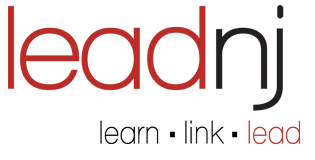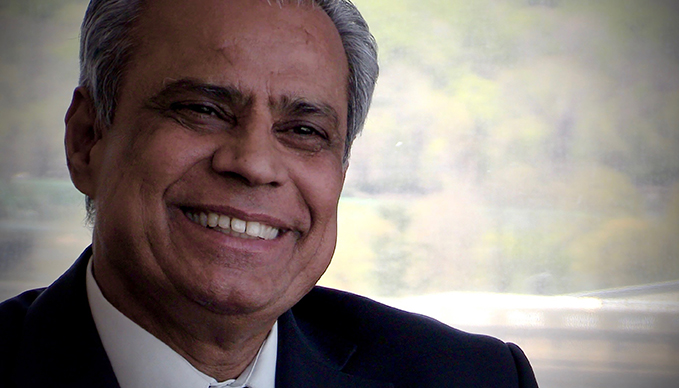|
CASE STUDY | Public Service, Energy and Environmental Policy LNJ 1998 Upendra Chivukula, Assemblyman, Commissioner on the New Jersey Board of Public Utilities
LEAD NJ: What brought you to Lead New Jersey in 1998?UPENDRA CHIVUKULA: I was already an elected official at the local level, and had understood issues of land use and various issues at the local level. Lead New Jersey at that time, provided the opportunity to learn about statewide issues. At that time I didn't know I was going to be running for state legislature, but Lead New Jersey provided the footing for me, so that I could learn about the issues, expand my knowledge base, and help out people on a larger scale. It was such a great collection of people from all walks of life, non-profit, and local, county, and state. We had such a good synergy going on and we were able to work together, and we had all these different colors, and I was the red team, and trying to empathize, understand what people go through, and that really sparked my thinking about, "We have to do something good for people," and wearing the red shirt and suffering for lack of money, lack of shelter, all those things, really tells you ... In America, it's not easy to experience, I think. Lead New Jersey provided that opportunity to see how hard it is, and how to negotiate your way out of poverty. LEAD NJ: How have you used the greater Lead New Jersey network, both personally and professionally?UPENDRA CHIVUKULA: I attended many annual programs and graduation sessions. Then Leadership New Jersey came to the state legislature, and I was able to host them and got in touch with people every so often. When I need something or someone else needs my help, we stay in touch with each other. I remember one of my classmates who was running a program in Jersey City for the immigrant population, especially the undocumented immigrants, how we can help them, and that prompted me to introduce the legislation for the institution for children of undocumented immigrants. UPENDRA CHIVUKULA: You have to walk the walk, and not only talk the talk. That's the most important thing. We can give advice, it's very cheap and easy, but when you want to really look to those problems, and try to solve them not only for yourself, but others—I think it really brings out the best in you, and that's what leadership is about, not sitting back when you have challenges or obstacles. That's what Lead New Jersey provided me—that courage to stand up and speak up. That's the most important thing, so I have also worked on several other things, like solar energy, and I have more than 65 pieces of legislation signed into law, and when I started the legislation, I was alone. I couldn't even get a co-sponsor from my democratic colleagues, so forget about the Republican colleagues, but I was able to have the courage to go forward, and once of course, as you know, that success has many fathers, and failures are orphans, and once my legislation started moving, everybody jumped on them. I think that's what leadership is all about. You take the courageous step, and don't look back, go forward, and people will join you. LEAD NJ: Two of our seminar topics throughout the year continue to be energy and environment, as part of the current program. What could share about New Jersey policies, or some of your work, both as a legislator and as a commissioner for the BPU?UPENDRA CHIVUKULA: I think a critical thing is no matter where you stand on what created the climate change, I think we have to look at the scientific data, and take care of the Earth. We celebrate Earth Day every year, and it's just not a celebration, but we have to live up to it, in that we have to see how we can tell people that Earth is just a lease, not an ownership. We have to take good care of it, so we need to come up with renewable policies, green policies, because green economy, if you look at the 3rd world countries, and 2nd world countries, they have a lot of progress they have made in the green economy, and the United States being a leader in the world, has many ways of harnessing natural resources like solar wind, biomass, geothermal, the opportunities are there. New Jersey's currently 3rd or 4th in the solar arena. We are the first state to pass the 1100 megawatts of offshore wind energy, and I see that offshore wind is going to be critical, because we do not have shell gas, but we have sun. We have 3 and 1/2 hours of average sun everyday. I think we need to think about innovation, and we need to come up with policies that really make a big difference in everybody's life. Also, the energy sector is at a crossroads right now. People are talking about disconnecting from the grid, about distributed generation, but we cannot forget that the people ... The reason why we have, it's a law called "PURPA," it's the Public Utility Regulatory Policies Act, where you are trying to have this interstate grid that connects, makes sure that everybody, no matter where they live, will have access to electric power. By people pulling off that grid, what is going to happen is that the people who are left behind are the people who have less resources, and less economically will be challenged. We need to think about those things, and see how we can come up with grid based solutions, harnessing the natural resources like solar, wind, and other sources. LEAD NJ: For someone who's interested in starting a career or working in public service, the way that you did, what you would recommend for them to do in their community? UPENDRA CHIVUKULA: I started the grassroots way. I think they should do that. They should start learning basics, learning the process at the grassroots level, and volunteering in the local townships or counties, where they have environmental commissions, or planning boards, and volunteer. This is how you learn, and then you decide if electoral office is for you. For more information about Upendra Chivukula |

